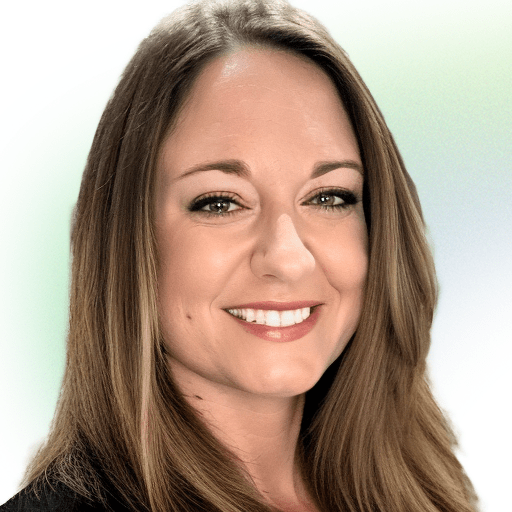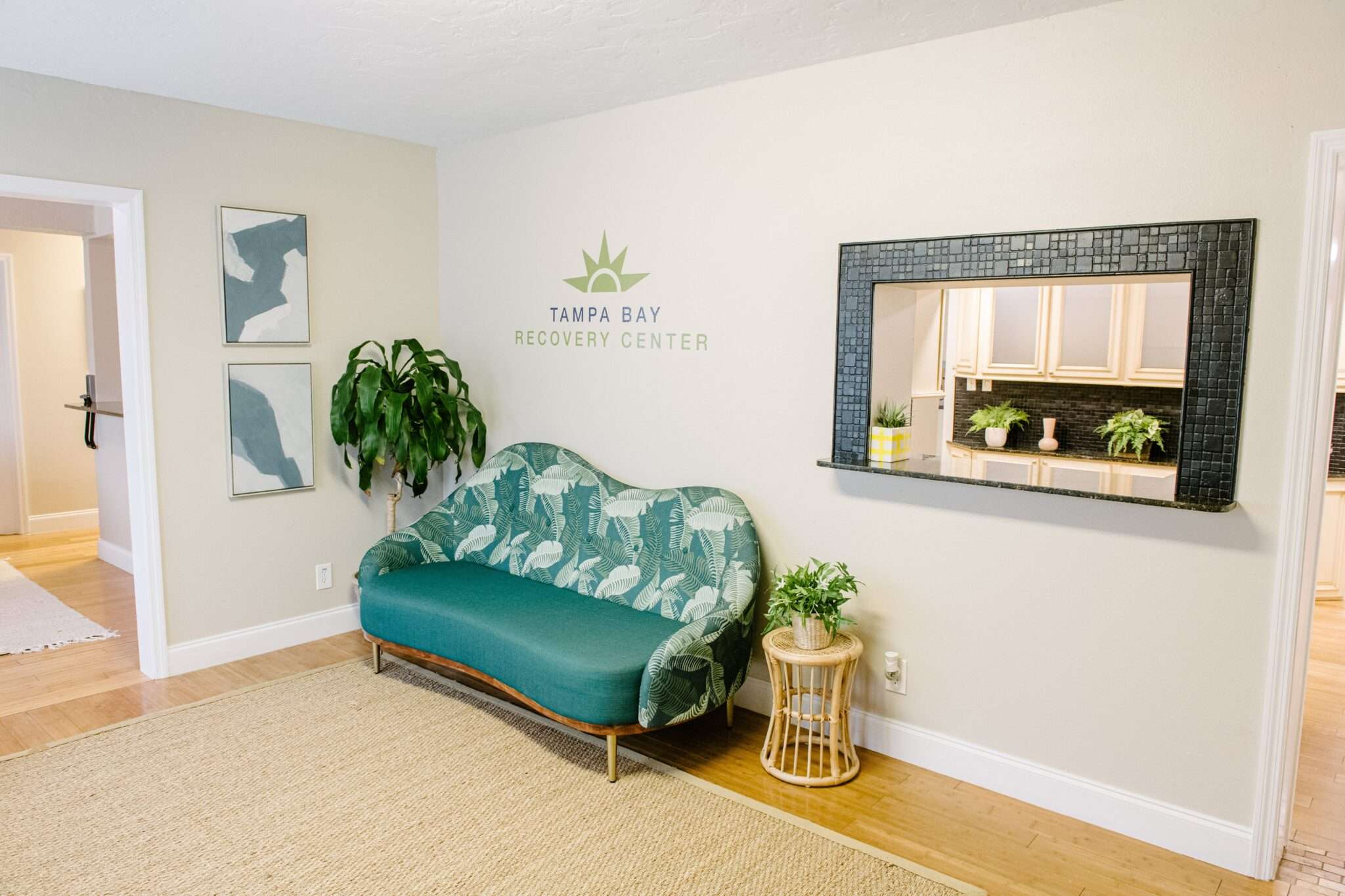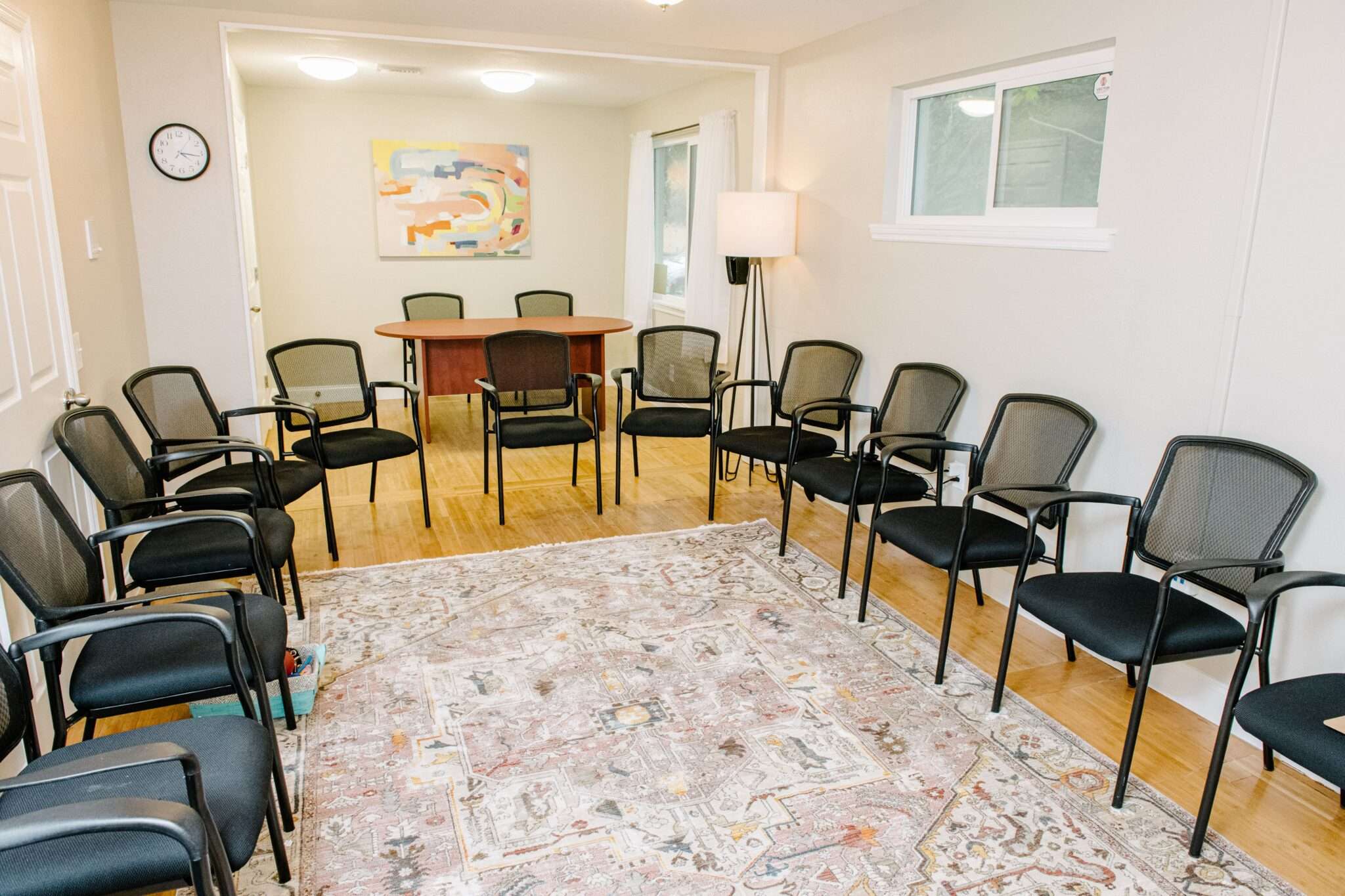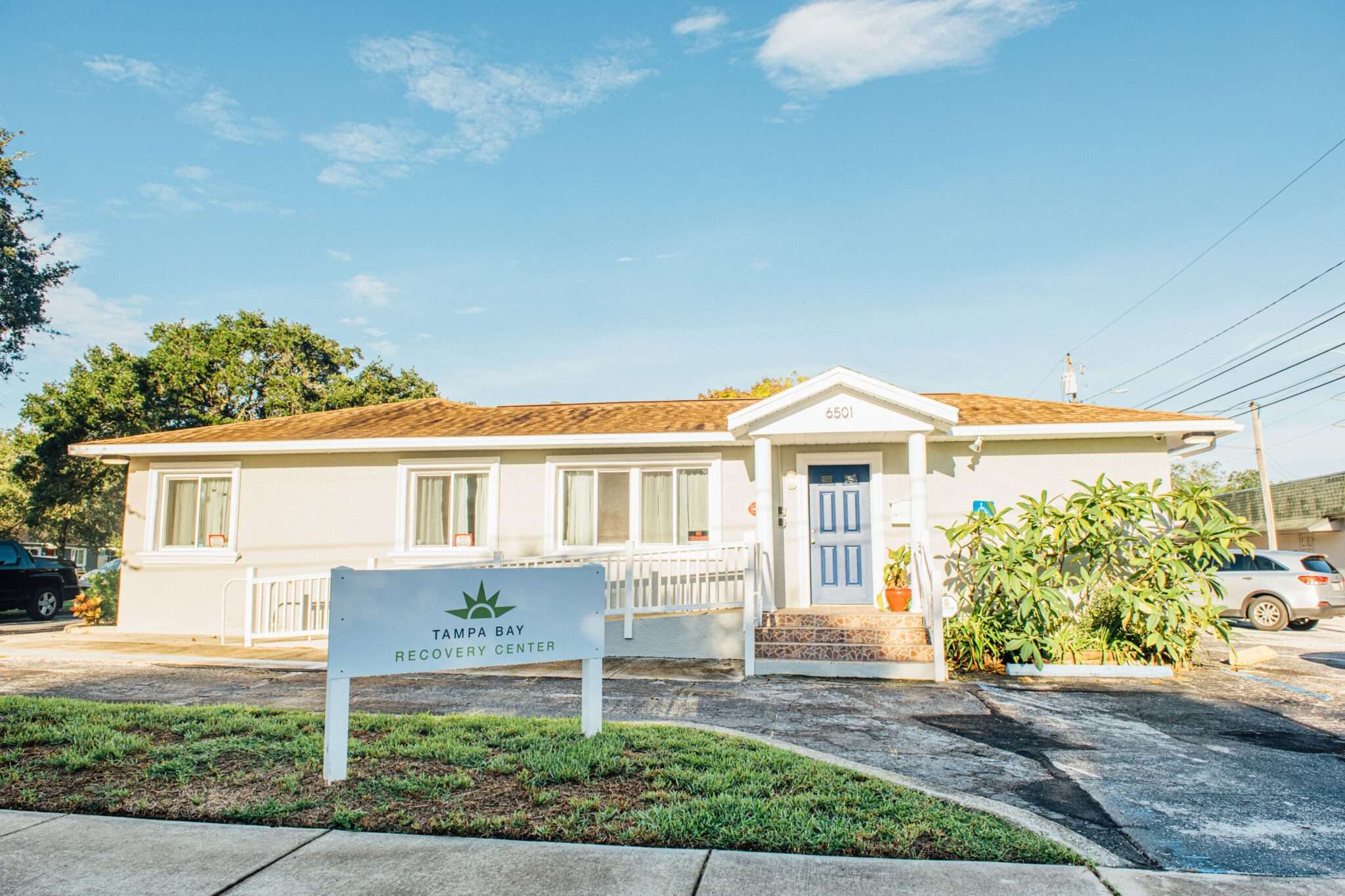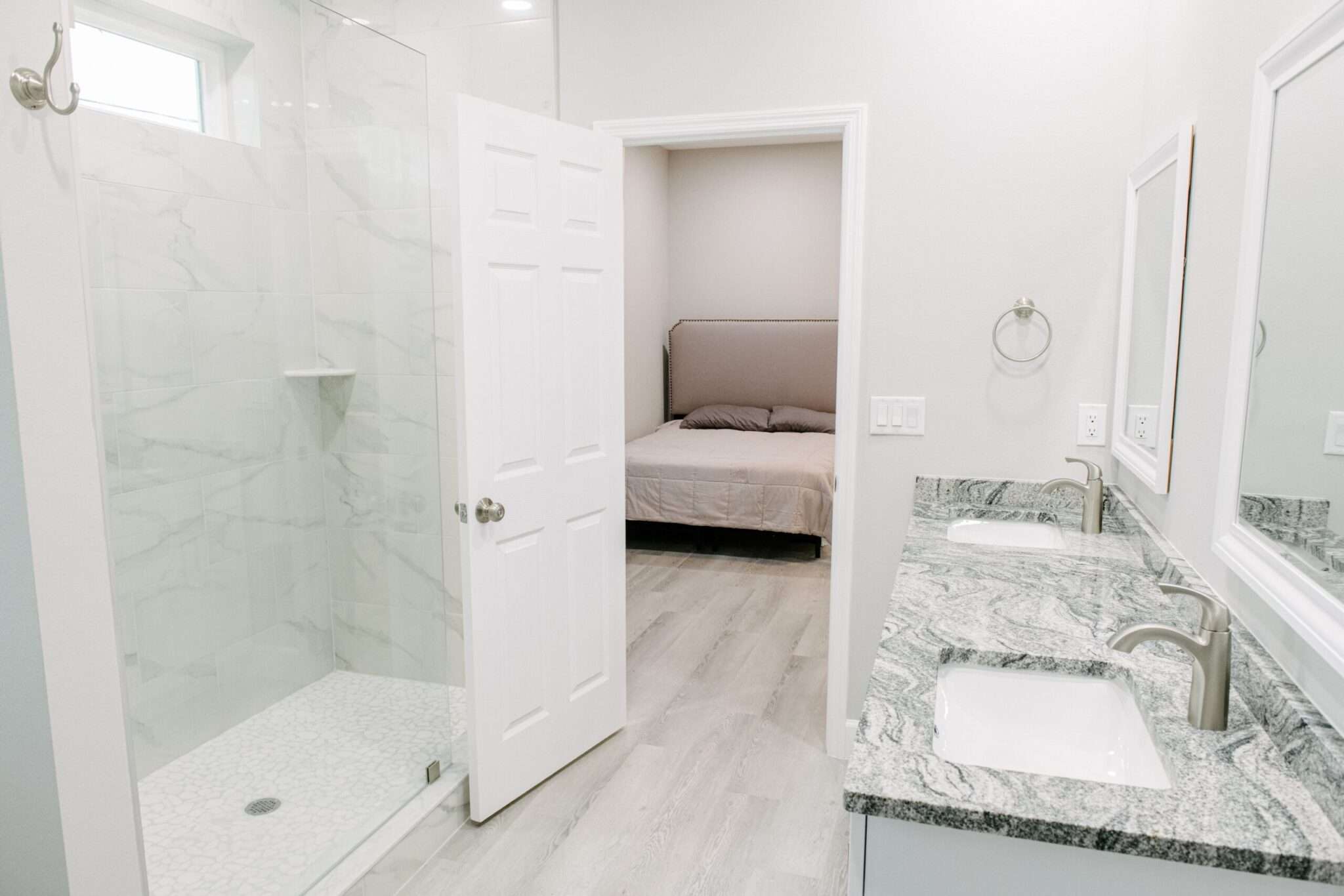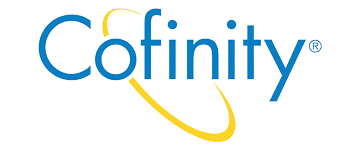Cognitive-Behavioral Therapy (CBT) in Tampa, FL
Psychotherapy plays a pivotal role in the treatment of mental health and dual-diagnosis disorders. Among the various therapeutic modalities available, cognitive-behavioral therapy (CBT) stands out as a highly effective option tailored to address specific symptoms. At Gulf Coast Recovery Center in Tampa, Florida, we proudly offer CBT to help individuals overcome a variety of mental health challenges.
If you’re ready to take the first step toward healing, visit our admissions page to start your journey with cognitive-behavioral therapy today.
What Is Cognitive-Behavioral Therapy?
Cognitive-behavioral therapy (CBT) is a structured, evidence-based form of therapy designed to treat a range of mental health conditions and substance use disorders.
CBT is rooted in the principle that our thoughts and beliefs significantly influence our behaviors. Unhealthy thought patterns often lead to maladaptive behaviors, but by identifying and restructuring these patterns, you can develop healthier responses. At Gulf Coast Recovery Center, our experienced therapists guide you through this transformative process. Through CBT, you’ll learn to recognize and modify unhealthy beliefs, replacing them with constructive ones that lead to healthier behaviors.
Why Is CBT the Gold Standard in Psychotherapy?
Cognitive-behavioral therapy has earned its reputation as the gold standard in psychotherapy due to its strong foundation in research and proven efficacy. According to Frontiers in Psychiatry, CBT is unparalleled in the field for several reasons:
- It is the most extensively researched form of psychotherapy.
- No other therapy has consistently outperformed CBT in effectiveness.
- Its theoretical models align with modern paradigms of human behavior, such as information processing.
Understanding the ABC Model in CBT
One of the core principles of CBT is the ABC model, a framework that helps individuals understand how maladaptive behaviors develop. The model, developed by Albert Ellis, emphasizes the connection between thoughts, beliefs, and behaviors. While it’s easy to assume that a triggering event directly causes a reaction, the ABC model highlights that your response is shaped by your beliefs about the event.
The ABCs are as follows:
- Antecedent (Activating Event): The event or situation that triggers a reaction. Examples include conflicts with a loved one, workplace challenges, or personal loss.
- Belief: The thoughts or beliefs you hold about the activating event. These beliefs may stem from long-standing thought patterns. For instance, if a friend doesn’t respond to a text, it could evoke feelings of abandonment.
- Consequence: The emotional or behavioral response to the event, shaped by your beliefs. Using the previous example, if abandonment fears surface, you might lash out or withdraw.
By changing the belief (the “B” in the model), you can alter your behavioral and emotional responses. This process, known as cognitive restructuring, is a cornerstone of CBT.
What Is Cognitive Restructuring?
Cognitive restructuring is the process of identifying and transforming unhealthy thoughts and beliefs. During CBT sessions, therapists work with you to uncover thought patterns contributing to mental health challenges or substance use. By raising your awareness, you can reframe negative thoughts into positive, empowering ones.
For example:
- “Bad things always happen to me.” → “I’ve faced challenges, but I can overcome them.”
- “I don’t deserve to be happy.” → “I am worthy of happiness.”
- “I’ve wasted every opportunity.” → “I can learn from past experiences and create new opportunities.”
Cognitive restructuring often includes activities outside of therapy, such as journaling negative thoughts and reframing them with your therapist’s guidance. This technique empowers you to regain control over your thought patterns and behaviors.
What Is Behavioral Activation?
Behavioral activation is another key technique in CBT, designed to counteract isolation and avoidance—common symptoms of mental health disorders. By gradually engaging in meaningful activities, you can break the cycle of avoidance and begin to heal.
For instance, if depression has led you to avoid social interactions, you might start by reconnecting with a friend over the phone before progressing to in-person meetings. This step-by-step approach helps you regain confidence and reduce overwhelming feelings.
What Conditions Does CBT Treat?
At Gulf Coast Recovery Center, our CBT programs address a wide range of mental health and co-occurring disorders, including:
- Anxiety Disorders: Generalized anxiety disorder (GAD), social anxiety, specific phobias, and panic disorders.
- Depression: Behavioral activation and cognitive restructuring help combat depressive symptoms.
- Bipolar Disorder: CBT complements mood stabilizers and other medications to manage bipolar symptoms effectively.
- Post-Traumatic Stress Disorder (PTSD): CBT is a leading therapy for PTSD, often combined with other techniques like EMDR or brainspotting.
- Obsessive-Compulsive Disorder (OCD): CBT is the standard treatment for OCD, addressing distressing thought patterns driving compulsive behaviors.
- Schizoaffective Disorder and Schizophrenia: CBT helps manage distorted thoughts and works alongside antipsychotic medications.
- Dual Diagnosis: For individuals with co-occurring mental health and substance use disorders, CBT is invaluable in managing relapse triggers and symptoms.
Are You Ready to Transform Your Life?
Cognitive-behavioral therapy offers a powerful pathway to healing and personal growth. At Gulf Coast Recovery Center, we are committed to helping you navigate this journey with compassionate care and evidence-based practices.
Take the first step toward a brighter future. Verify your insurance and begin your CBT journey with us today.

